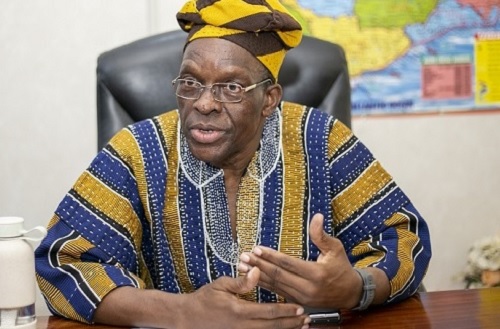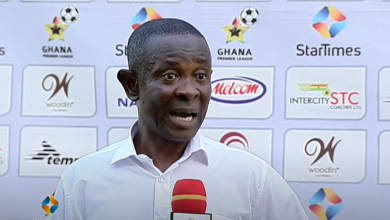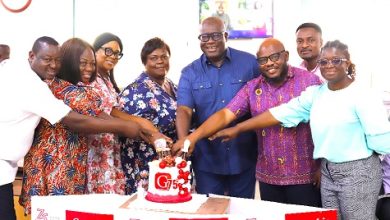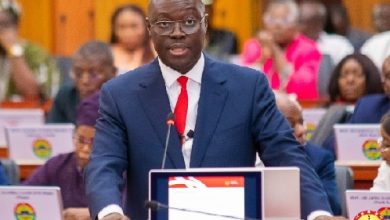
The Speaker of Parliament, Alban Sumana Kingsford Bagbin, has urged Parliament to leverage the national budget as a strategic tool to promote the country’s independence from the constraints of external assistance.
He said at a critical moment in Ghana’s economic history, the budget must serve as a primary instrument for transforming its economic paradigm.
“The budget is our sovereign roadmap to self-reliance, and policies contained in this budget must steer us away from dependency towards a resilient, domestically driven economy,” he said.
Recurrent economic cycle
Mr Bagbin was speaking in Accra last Saturday at the opening of a three-day post-budget workshop for members and staff of Parliament.
The three-day workshop will equip legislators with a clear understanding of the technical, fiscal and policy foundations of the national budget.
Experts will break down complex macroeconomic data, revenue and expenditure priorities and emerging issues, enabling MPs to scrutinise proposals effectively and contribute to informed, impactful national decision-making.
Mr Bagbin said Parliament must address Ghana’s recurrent cycle of economic challenges, including its engagement with the Bretton Woods institutions — the World Bank and the International Monetary Fund (IMF) — and the external environment that shaped “our fortunes”.
“The IMF has long provided financing, policy advice and crisis support, yet the conditions attached to these support are often stringent fiscal consolidation, structural reforms and external debt management that have had mixed outcomes across Africa.”
“A common refrain echoes across Africa that Africa is not poor; it is poorly managed, and the budget is the clearest expression of that management,” he said.
Supreme national stewardship
The Speaker said the price of liberty was eternal vigilance and the Legislature’s role in the stewardship of public resources was indispensable.
He said it was Parliament that must ensure that every policy objective translated into measureable and sustainable outcomes for the country.
“Honourable members, your role in this budget approval process extends beyond mere approval; it is an act of supreme national stewardship.
“You are the critical link between the budget and our national deployment aspirations, ensuring its alignment with commitments such as Agenda 2063, the Sustainable Development Goals, and even the current programme of the 24-Hour Economy,” Mr Bagbin said.
The Speaker told the participants that data was clear on Ghana’s economic ups and downs, a reason reforms could not fix such perennial challenges.
He explained that Ghana’s budget performance index from 2020 to 2024 exposed enduring weaknesses in the expenditure, revenue predictability and budget execution compared with its regional peers.
“Nations that mobilise revenue effectively and uphold transparency in spending consistently achieve stronger and more inclusive growth,” the Speaker said.
Power of the purse
The Speaker said the national budget extended far beyond a ledger of receipts and expenditures as it serves as the socio-economic blueprint, translating the hopes and ambitions of the citizens into actionable policy and measurable outcomes.
“It is the instrument by which we convert aspirations into programmes, and programmes into progress that touches every household,” Mr Bagbin said.
The Speaker added that the Constitution enshrined a timeless principle of the power of the purse which rested in the hands of the people’s representatives.
The core mandate of Parliament, he said, was unequivocal, and that no government money could be spent without an explicit authorisation of the Legislature through an appropriation act.
“This is not a bureaucratic formality; it is the sacred covenant of democratic accountability.
“As Lord Acton said, power tended to corrupt, and financial power in particular, must be subjected to rigorous, transparent and representative scrutiny,” he said.
Mr Bagbin pointed out that in current terms, it had been affirmed that Parliament stood as the ultimate guardian against Executive overreach in the management of public funds.
“We do so to protect the public trust, conserve scarce resources and ensure that every cedi advanced a common goal and common good of our people,” he said.
The Speaker indicated that Ghana’s constitutional framework demanded the highest standards of checks and balances, ensuring that policy proposals were debated, budgets scrutinised and expenditures classified.
“For Parliament to be effective, its members must move from being readers of the budget to masters of its contents,” he said.
Commitment
The Majority side expressed its unwavering commitment to support the 2026 Budget, describing it as a national call to action aimed at consolidating economic recovery and accelerating sustainable growth.
Presenting a statement on behalf of the Majority Leader, the MP for Cape Coast South and Deputy Majority Leader, George Kweku Ricketts-Hagan, said the budget reflected the government’s dedication to fiscal discipline, efficient resource mobilisation and social investment that delivered real benefits to Ghanaians.
He emphasised that the post-budget workshop provided an essential platform for Parliament and the Executive to deepen understanding of policy choices, strengthen scrutiny and forge consensus.
Delivering a statement on behalf of the Minority Leader, she highlighted persistent economic pressures — cost of living, unemployment and debt — and urged MPs to approach the budget with clarity, compassion and responsibility.
She stressed that every statistic reflected real human lives, and Parliament must prioritise transparency, discipline and innovation to ensure public resources were managed efficiently and fairly for national progress.



